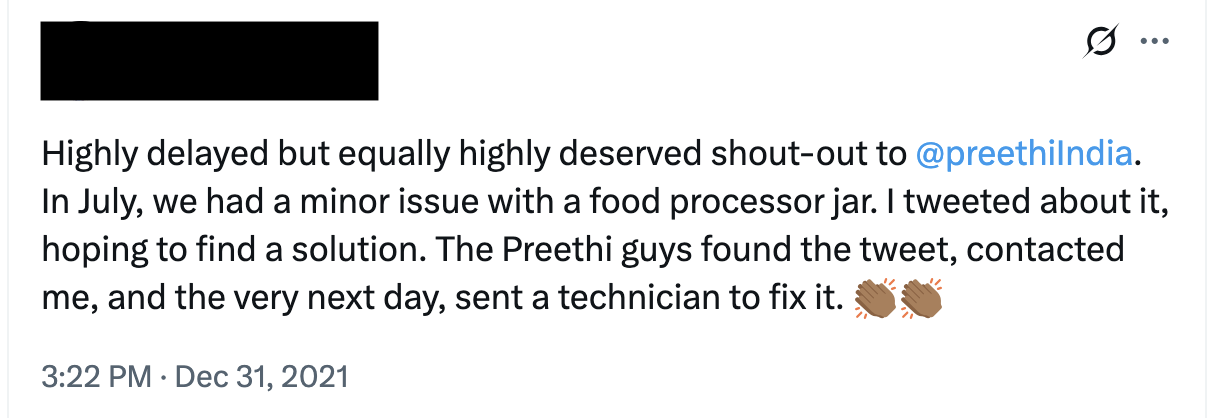Take social media support more seriously
- Last Updated : April 25, 2025
- 140 Views
- 4 Min Read

In one of our recent posts, we stated that social media sites today have moved far away from just connecting individuals. Think about it; back in the late 2000s, when sites like Orkut and MySpace were ruling the roost, new entrant Facebook was also all about reconnecting with old friends and making new ones. Today, however, brands use social media sites as much as individuals do, if not more. And they use it for two key reasons: marketing and customer support.
While businesses have started spending substantially on social media marketing, the same can't be said of customer support, which is a bit of a downer because customer support is often considered a cost center. Your support team's work might not always yield monetary returns, but it leads to intangible returns in the form of customer loyalty and advocacy. This makes it all the more imperative to take social media support more seriously, especially if you're a B2C or D2C brand.
Presence matters
One of the core expectations in customer support is omnichannel presence. With more and more people worldwide becoming social media users, the onus is on brands to provide support via social media. For one, customers get to see people on their friends list or timeline interacting with brands on social media and getting issues resolved. This plants in their minds the idea that all brands are "supposed to" provide support via social media. If you don't meet this expectation, it leaves a negative impression on them.
Additionally, your customers may already be using social media apps for other purposes. Providing support via those same platforms makes it easier and more convenient for them to reach you.
Optics matter
Among the various reasons that people use social media platforms today, checking out reviews is one that's frequent and widespread. Whether it's a product, software tool, movie, or restaurant, people visit social media for reviews from fellow users or customers. To them, this is the easiest way to find authentic, unbiased, and sometimes unfiltered opinions on any subject. How is this relevant to optics?
Here's an example: A customer searches for reviews on your offering on a social media platform—in this case, let's say it's X (formerly Twitter).
Scenario 1: They find a negative review from another customer. Your brand's name is mentioned, but you aren't tagged in the post/tweet.
Scenario 2: They find a post/tweet from a customer about an issue with your offering. You're tagged in the post, but there's no reply from your end.
Scenario 3: Same as Scenario 2, but the difference is that you replied asking the customer to contact you via DM/PM, and even resolved the issue to their satisfaction. But there's no sign of the resolution in the conversation thread.
Which of these three scenarios do you think does the most damage to your brand image? Emphasis on "most," because all three scenarios cause damage in one way or another.
In Scenario 1, you're not tagged in the post, so the customer looks at it as a nugget of information and moves on. If the information isn't a deal-breaker for them, they might still consider choosing your offering.
In Scenario 2, the damage is greater, because the original customer had tagged your handle, but you haven't acted on it. The person seeing this post/tweet will most likely look at it as indifference from your side, and assume that they'll receive the same treatment from you. This works completely against your favor.
Scenario 3 is the most unfortunate, because you actually resolved the issue, but only the customer knows it and no one else. Let's say that you moved to a different support channel—say, phone—to resolve the issue. This effort isn't recorded anywhere in the conversation thread, and you can't expect the customer to acknowledge it. You've lost an opportunity to leave a positive impact on other customers' minds and gain their trust.
This is why optics matter, and they matter a lot in a channel like social media because the whole world can see it.
Proactivity matters
Let's take Scenario 1 from the previous section and give it a spin. The original customer hasn't tagged your official handle in their post/tweet, but you found it yourself and addressed their issue. This is a proactive move and not a reactive one.
Needless to say, proactive service leaves a positive impression on customers and makes them remember you for the right reasons. It also makes them give you public shout-outs and positive word-of-mouth marketing.

Again, with social media, the effort involved in submitting a customer issue and providing wide-reaching shout-outs is more or less the same. This means that the more proactive you're on social media, the higher your probability of positive word-of-mouth.
Here are a few pro-tips before we end this article:
- Invest in a comprehensive customer support software tool that offers great omnichannel capabilities—including social media, obviously. That way, you'll get more visibility into customers' service histories and more context on their relationships with your brand.
- Use social listening tools to track and analyze customer sentiments. By tracking certain keywords related to both your brand or even your competitors', you can take proactive service to the next level.
- Route social media tickets to the relevant department. If it's a customer issue, let your support team handle it. If it's a positive review/shout-out, let your marketing team handle it.
- If possible, try to maintain separate social media accounts for marketing and customer support. This helps streamline your efforts a bit more effectively.
- Review and manage all your automated replies properly before deploying them. Irrelevant automated replies can enrage already-irate customers even further.
Let us know in the comments about your experience with customer support on social media.


